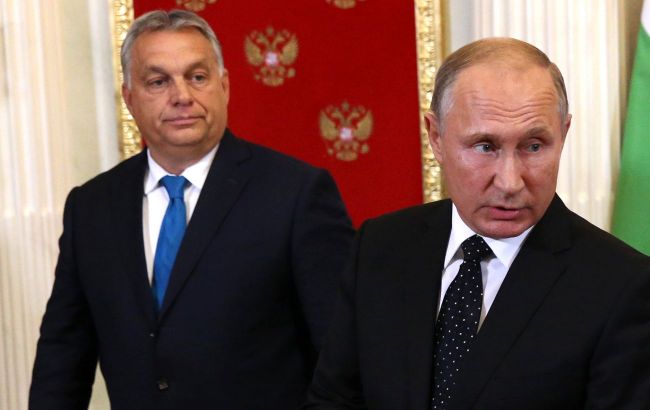EU to discuss how to react to Orbán's visit to Russia
 Viktor Orbán and Vladimir Putin (Getty Images)
Viktor Orbán and Vladimir Putin (Getty Images)
Tomorrow, July 10, ambassadors from 27 European Union states will meet in Brussels to discuss Hungarian Prime Minister Viktor Orbán's recent trip to Russia amid Hungary's six-month presidency of the bloc, reports Voice of America.
The closed-door meeting will take place at the request of Poland, which, along with others, expressed concern after Orbán visited Moscow on July 5 and Beijing on July 8, calling it a "peace mission."
The Hungarian prime minister admitted that he kept the tour a secret from his allies.
The Hungarian prime minister gave conflicting explanations for his role, admitting on the one hand that he was not authorized by the European Union to negotiate and insisting that he was acting as the sovereign leader of his country, Voice of America adds.
At the same time, Orbán said that his tour is connected to Hungary's presidency of the EU. He claims that he is trying to influence European politics and change the course set by the majority of the bloc's members.
As EU High Representative for Foreign Affairs and Security Policy Josep Borrell notes, Orban's trip "falls exclusively in the bilateral relations between Hungary and Russia."
"Prime Minister Orbán has not received any mandate from the EU Council to visit Moscow. The EU position on Russia’s war of aggression against Ukraine is reflected in many European Council conclusions. That position excludes official contacts between the EU and President Putin. The Hungarian Prime Minister is thus not representing the EU in any form," the statement said.
Orbán's tour
On July 2, Orbán arrived on a visit to Kyiv, where he met with President Volodymyr Zelenskyy. On July 5, the Hungarian prime minister traveled to Moscow, where he met with Russian leader Vladimir Putin. On July 8, Orbán also met with Chinese President Xi Jinping.
Read more about Orbán's visit to Moscow, its goals, and how European politicians reacted to it in RBC-Ukraine's article.

